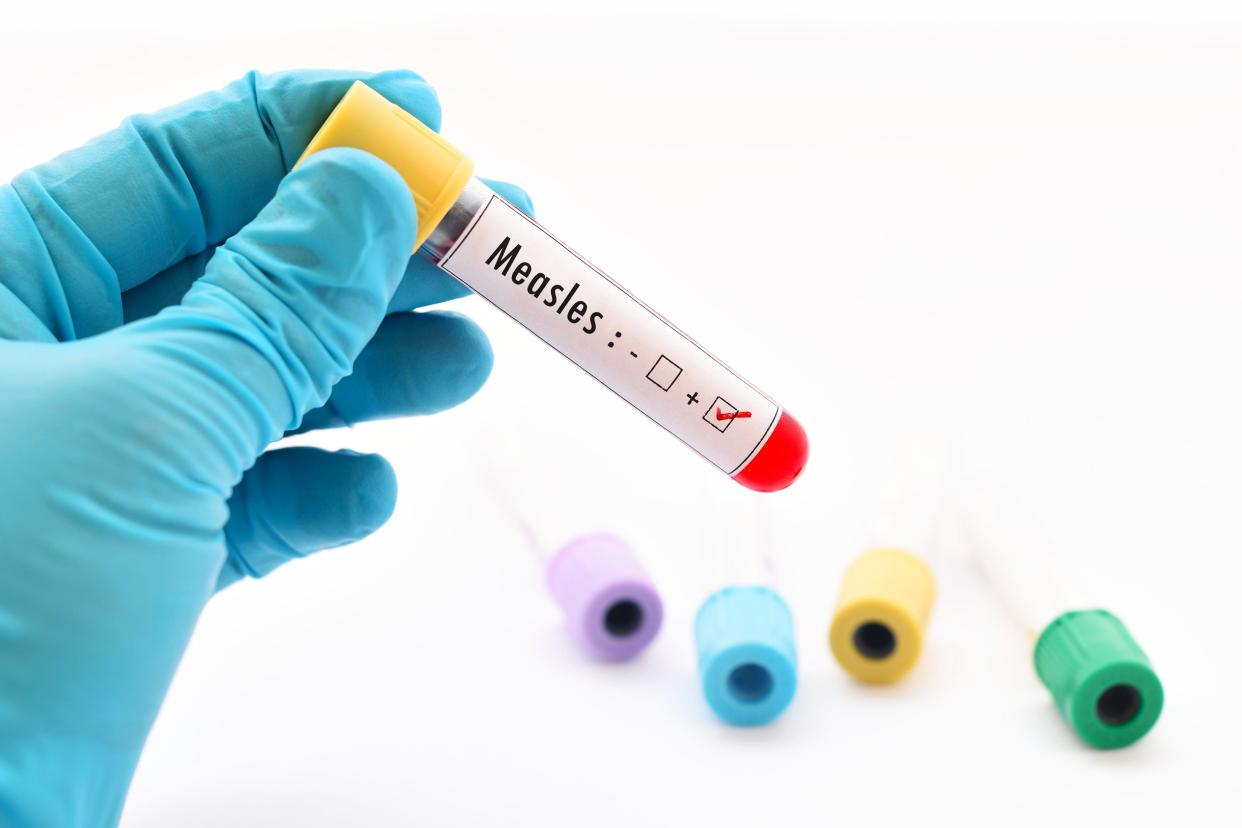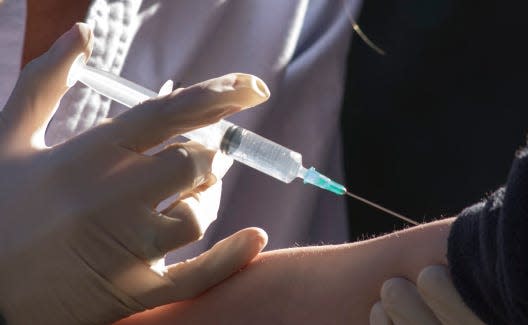What parents can do to protect their families as measles outbreak hits Philadelphia

The measles outbreak in Philadelphia has hospitals in the region on alert.
The first case appeared at the Children’s Hospital of Philadelphia in early December. Back then, the city’s Department of Public Health classified the case as a contagion imported from abroad, but it did not mention from where or release many other details.
Philadelphia health officials have now identified eight people infected with the highly contagious airborne virus.
No cases have been reported in New Jersey, according to state Health Department officials.
As of January 4, a total of 48 measles cases have been identified in the U.S., the CDC reported.
What is measles and how does it spread?
Measles is an airborne viral illness considered one of the world’s most contagious diseases. It can lead to severe complications and death, especially in children under 5 and pregnant women.
As an airborne virus, it spreads through tiny nasal and throat droplets in the air and on surfaces after those who are infected sneeze or cough.
Once the virus is in the air or on surfaces, it can remain active for up to two hours.
What are measles symptoms?
Measles symptoms usually begin 10 to 14 days after exposure.
The first phase of symptoms typically lasts between 4 and 7 days and includes:
Runny nose
Cough
Red and watery eyes
Small white spots inside the cheeks

Then comes a reddish rash. It usually starts on the face and upper neck, spreading to hands and feet over three days. The rash can be itchy and lasts around six days before fading.
Other symptoms include:
Swollen eyes
Fever
Loss of appetite
Fatigue
Complications
Measles can leave children extremely vulnerable as the virus also weakens their immune system. That can lead to complication, including:
Severe diarrhea
Brain infections
Ear infections
Pneumonia
Blindness
What can parents do to minimize risk?
Vaccination is the most effective way to prevent measles. The vaccine comes in two doses that are usually administered before age 2.
If your child is infected with measles, keeping them well-nourished and providing vitamin A supplements can reduce the risk of complications, according to the World Health Organization.
Washing hands often and using N95 facemasks can reduce the risk of contracting measles, according to the Occupational Safety and Health Administration.
The measles vaccine is considered safe and affordable and often is combined with immunization for mumps and rubella.
Can adults get measles?
Any person that is not immune to the virus can get measles regardless of age. Measles infection tends to be more severe in children under five, pregnant women and adults over 30.
More: Vaccination rate among 6th graders hits lowest level in years in Ocean County
Why has measles become common again?
While progress has been made toward the global eradication of measles, millions of children missed their measles vaccine during the COVID-19 pandemic. That caused a spike of 43% more cases in 2022 compared to 2021, the CDC reported.
The decline in vaccination rates during the pandemic caused large outbreaks in some 37 countries, causing 128,000 deaths, the World Health Organization reported.
In 2019, before the pandemic, the CDC recorded 1,274 individual cases of measles that were confirmed in 31 states, the greatest number of cases reported in the U.S. since 1992.
Back then, 12 cases were identified in Ocean and Monmouth counties.
This article originally appeared on Asbury Park Press: Measles outbreak in Philadelphia puts New Jersey parents on alert
